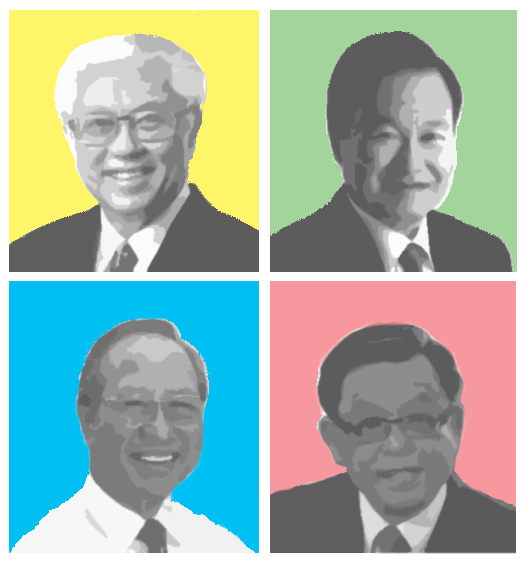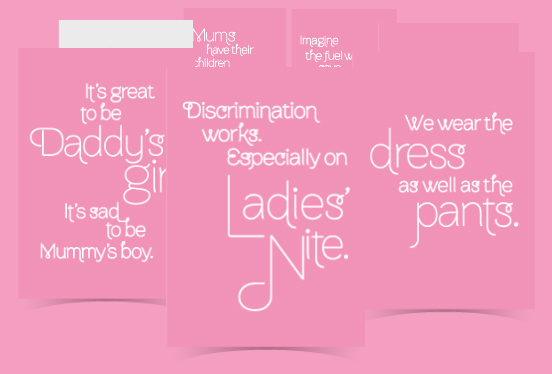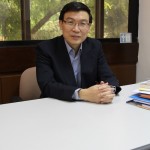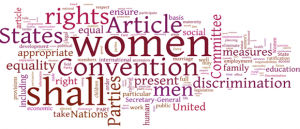This article does not condemn or endorse any particular candidate.
It’s time to make non-sexist comments on women’s issues a key part of the ‘new normal’ in Singapore politics.
By Lisa Li
 I don’t know. Certainly, women are not a homogeneous mass – there are lines drawn by race, religion, income, sexual orientation and so on, and even those in the same categories are obviously not the same.
I don’t know. Certainly, women are not a homogeneous mass – there are lines drawn by race, religion, income, sexual orientation and so on, and even those in the same categories are obviously not the same.
And women don’t just blindly vote for other women, for the sake of female political representation. (ie. Even if there were no Nicole Seah, we wouldn’t all vote for Tin Pei Ling just because she’s a woman.)
But I can tell you what many women do not want in a President. We do not want our political leaders to perpetuate sexist stereotypes, because words from the top carry weight, and through the media, these words can reverberate through society, influencing and perpetuating certain attitudes.
Dr Tan Cheng Bock: On wives getting permission from husbands
During The Online Citizen’s Face 2 Face forum (Part 2, 00:58), adjunct lecturer Ms Hani Mohamed asked the Presidential candidates what they would do to encourage women to enter politics or take on higher decision-making roles. Dr Tan Cheng Bock replied that “some of our top CEOs are women” but “the political arena is a difficult area for women in Singapore because the commitment is really very heavy. So you got to get the permission of your husband.”
There was a loud, collective ‘OH!’ from the shocked audience. Everyone seemed to realise how sexist that sounded, but rather than realise his faux pas, Dr Tan Cheng Bock merely smiled broadly.
However, at a later date, when asked for clarification by Yahoo! Singapore, Dr Tan said he was referring to the need for family support when either the husband or wife enters politics. “The first thing we do, we seek our wives concurrence,” he said.
Of course I agree with Dr Tan that family and spousal support is crucial for both men and women. But did he really mean it in a gender-neutral way? Why then did his original comment refer to politics as being “a difficult area for women” in particular?
In the absence of convincing clarification, I have to take his original reply, which specifically mentioned women, as indicative of his real opinion. I can only infer that Dr Tan is fine with the current level of female political representation, he assumes that all women are married, and he expects women to accord a certain subservience to their husbands.
Mr Tan Jee Say: Giving women the choice to be housewives
During the same forum (Part 2, 1:04), AWARE President Ms Nicole Tan asked the candidates for their views on the Baby Bonus – whether it was still necessary, and whether it had been effective.
Mr Tan Jee Say replied: “I would like to go back to the days when women can afford to be housewives… I’m not discriminating against women working, it’s just that women would like to have the choice of not working. After a certain stage in life, they (women) want to really look after their family. And the present circumstances do not allow such choice, because of cost.”
I agree that people should have this choice, but by focusing specifically on women instead of making a gender-neutral point, Mr Tan is merely reinforcing the attitude that women should be the ones to have “the choice” to “really look after their family”. Does he realise that this unequal burden placed on women, including those who work by choice, is precisely why some cannot cope with having more babies?
In fact, these gender stereotypes have a real impact in creating an unequal burden for women. The MCYS Singapore Fatherhood Public Perception Survey 2009 found that fathers spend about half the amount of time alone with a child during a weekend compared to mothers, due to work responsibilities (63%) as well as “society‘s views on how men should behave” (39%).
I thought Singapore was moving towards gender equality in households, with house-husbands or house-wives, or for both men and women to pursue career and financial independence while taking care of the household together… So why is Mr Tan moving backwards in proposing the ‘solution’ of giving women – not men – “the choice of not working”?
Dr Tony Tan: Capitalizing on Dr Tan Cheng Bock and Mr Tan Jee Say’s mistakes
In this respect, perhaps Dr Tony Tan played his cards well. During the lunchtime rally at UOB Plaza on August 24, one of his supporting speakers Ms Trina Lin-Liang, president of UNIFEM (Singapore) rebutted Dr Tan Cheng Bock’s comments by pointing out that “surely in this day and age of shared responsibility in a modern marriage, I would hope a wife need not ask for permission, like asking a superior. I hope modern marriage is a consultative process between two equals, very much like what I see Dr Tony Tan and wife to be!”
As for Mr Tan Jee Say’s proposal, Ms Lin-Liang reminded the crowd that “Singapore women have contributed hugely to the economic growth in Singapore. Although I have no objection to any woman who chooses to be a home-maker, by not having a proper survey of the needs and aspirations of Singapore women and truly understanding what modern Singaporean women want, why should my future President spend his time thinking of how he can make more housewives out of happily working women?”
And to drive home the point that he fully supported gender equality, Dr Tony Tan re-emphasized that “I have not one, not two, but three women speaking today [to support me] at this rally!”
“Everybody knows that in this Presidential race, we have four Tans, but fewer people have realised that the four Tans are all men. I am confident that this will not be the case forever. Things will change. All of us, our sons and daughters, must know – and I’m confident – that it won’t be too long before we have our first female President!” This garnered loud applause from not just his ‘official’ supporters, but many others from the crowd.
So what do women want?
So does that mean women definitely voted for Dr Tony Tan, since he appeared to be the most progressive out of the four candidates, at least on the gender equality front? Surely not. Our voting decision is coloured by so many other factors, including our assessment of the candidates’ values, character and opinions. And of course it is easy to voice one’s support for gender equality without any genuine belief or action.
It is easy. Which is why I am concerned that some of the Presidential candidates weren’t aware enough to make gender-neutral, non-sexist comments. Surely none of them would dream of saying anything discriminatory against certain races or religions, so why should it be any different for comments on women? How can we make sexist comments clearly taboo, from our homes, schools, offices, right up to the courts, Parliament and the Istana?
Lisa Li is a teacher and writer.
























 I don’t know. Certainly, women are not a homogeneous mass – there are lines drawn by race, religion, income, sexual orientation and so on, and even those in the same categories are obviously not the same.
I don’t know. Certainly, women are not a homogeneous mass – there are lines drawn by race, religion, income, sexual orientation and so on, and even those in the same categories are obviously not the same.
